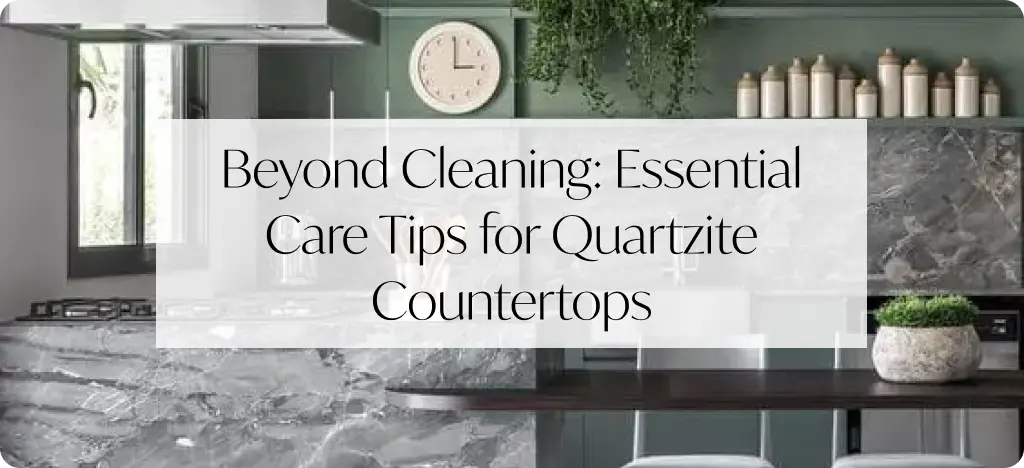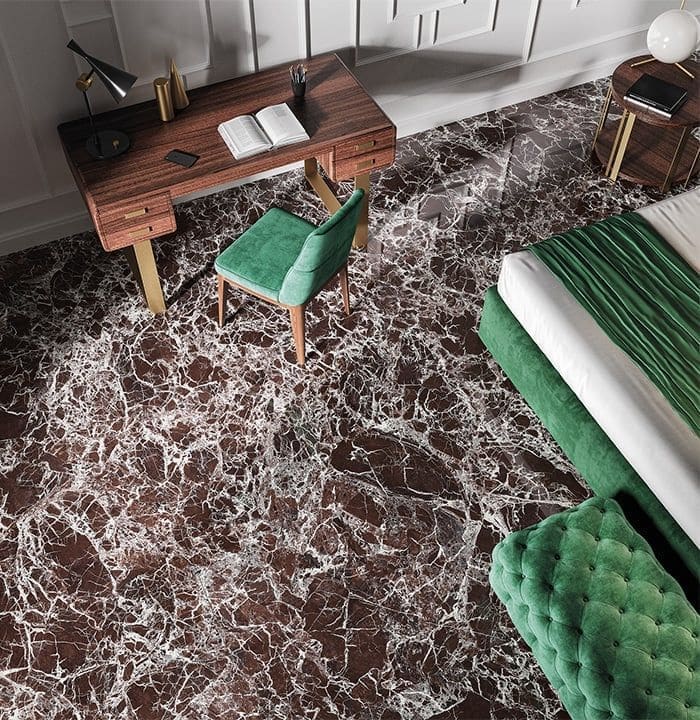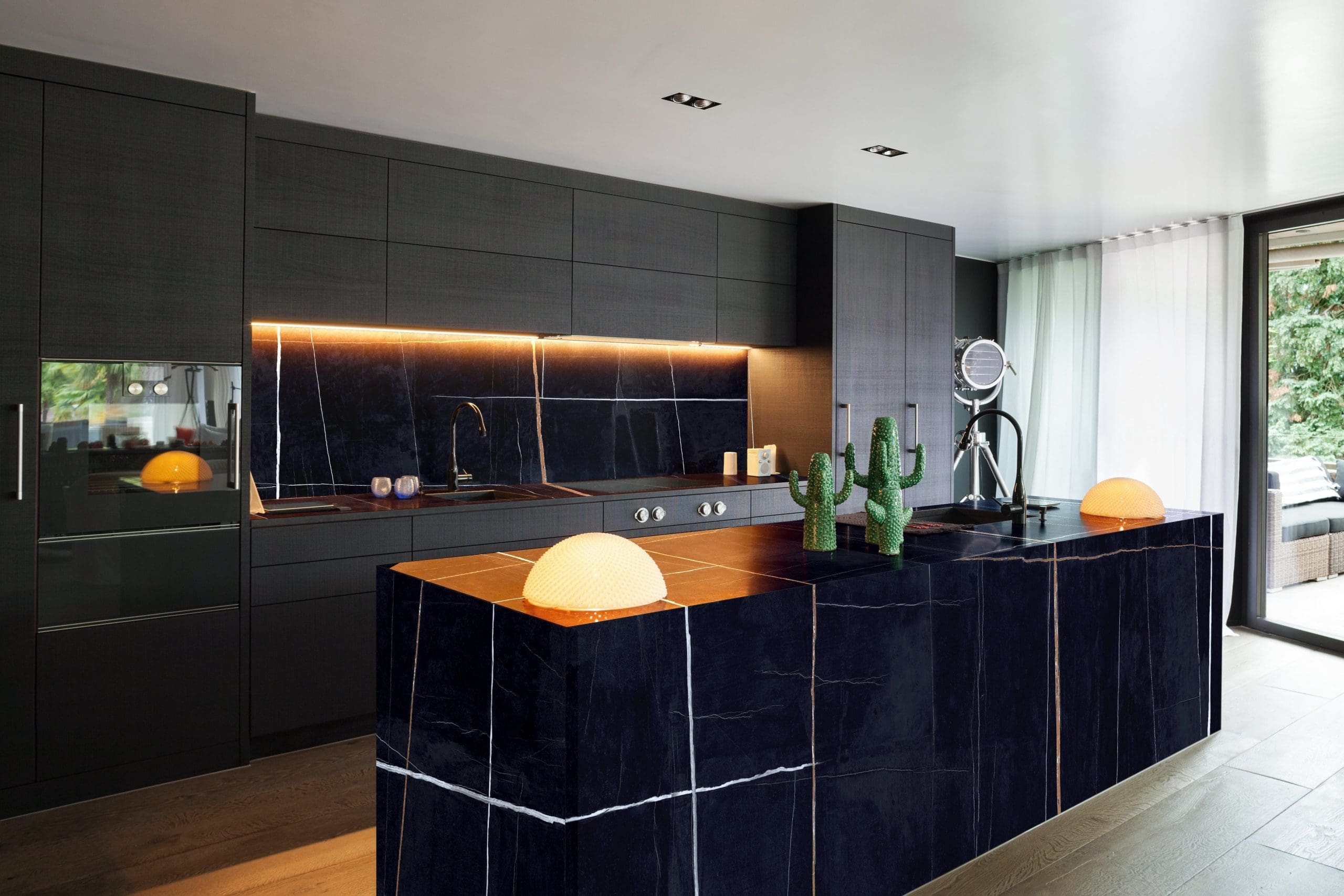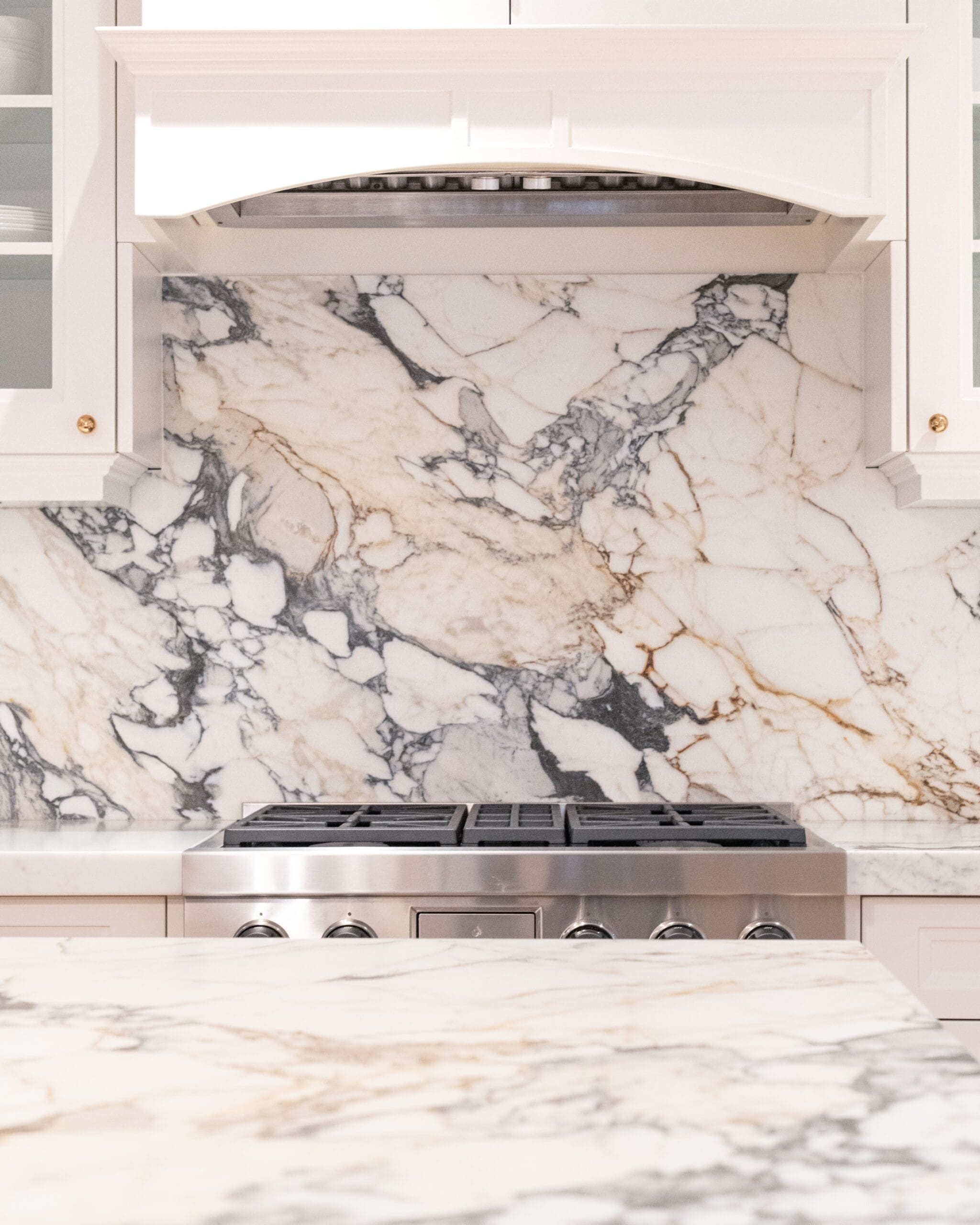How to Clean Quartzite Countertops?
The allure of quartzite countertops is undeniable. Homeowners across the Greater Toronto Area are increasingly drawn to their captivating beauty, characterized by swirling patterns reminiscent of marble and a timeless elegance that elevates any kitchen or bathroom design. But quartzite’s appeal goes beyond aesthetics. It offers a remarkable combination of luxurious looks and inherent durability, merging the best qualities of marble and granite. To ensure these stunning countertops maintain their brilliance for years to come, however, proper care is essential.
Here at Better Marble, a leading supplier of premium stone surfaces in the Greater Toronto Area, we’re dedicated to empowering homeowners, fabricators, designers, and contractors with the knowledge to preserve the brilliance of their quartzite countertops. In this comprehensive guide, we will cover everything you need to know about cleaning and maintaining quartzite countertops, including daily care, deep cleaning, stain removal, sealing, and more.
What is Quartzite?

Quartzite is a metamorphic rock formed when sandstone is subjected to intense heat and pressure. This metamorphosis imbues quartzite with a remarkable hardness and resilience, making it a captivating and practical choice for countertops. The mineral composition of quartzite is similar to quartz, contributing to its exceptional durability. However, unlike quartz, which is a manufactured product with consistent coloring, quartzite boasts a captivating natural beauty. Each quartzite slab is unique, showcasing a symphony of swirling patterns and subtle color variations. This inherent variation is what makes quartzite so sought-after, offering a touch of individuality and timeless elegance to any space.
Why Choose Quartzite for Your Countertops?
Quartzite is a preferred material for countertops for several reasons:
- Durability: It is harder than granite, making it resistant to scratches and etching.
- Aesthetic Appeal: Quartzite offers a wide range of colors and patterns, often resembling marble with its beautiful veining but without the high maintenance.
- Heat Resistance: Quartzite can withstand high temperatures, making it suitable for kitchen countertops.
- Low Maintenance: With proper sealing, quartzite is relatively easy to care for, requiring minimal effort to keep it looking pristine.
Are you considering quartzite countertops for your home or project? View our stunning collection of quartzite slabs and Contact Better Marble today for expert advice and high-quality quartzite products.
Daily Care and Maintenance of Quartzite Countertops

Basic Cleaning Supplies You Need
To keep your quartzite countertops in top condition, you’ll need the following cleaning supplies:
- Mild dish soap
- Warm water
- Soft microfiber cloths or sponges
- pH-neutral stone cleaner
- Paper towels or a soft drying cloth
Step-by-Step Guide to Daily Cleaning
- Wipe Down the Surface: Use a soft cloth or sponge with warm water and a few drops of mild dish soap to wipe down your countertops daily. This will remove any spills, crumbs, or dust.
- Rinse and Dry: After wiping with soapy water, rinse the cloth or sponge and wipe down the surface again with clean water to remove any soap residue. Dry the surface with a paper towel or a soft cloth to prevent water spots.
- Use a pH-Neutral Cleaner: For a deeper clean, you can use a pH-neutral stone cleaner. Spray the cleaner onto the surface and wipe with a microfiber cloth. Follow the manufacturer’s instructions for the best results.
Natural Ways to Clean Quartzite Countertops
If you prefer natural cleaning solutions, consider using a mixture of water and white vinegar or a few drops of essential oils like lavender or tea tree oil. Here’s how:
- Mix Solution: Combine equal parts of water and white vinegar in a spray bottle. Optionally, add a few drops of essential oil for a pleasant scent.
- Spray and Wipe: Spray the solution onto the countertops and wipe with a soft cloth.
- Rinse and Dry: Rinse the cloth and wipe the surface with clean water, then dry with a paper towel or soft cloth.
Note: While vinegar is effective for natural cleaning, it should be used sparingly and never on unsealed or poorly sealed quartzite, as it can etch the surface.
Deep Cleaning Quartzite Countertops

How to Remove Stains from Quartzite Countertops
Despite your best efforts, stains can occasionally occur. Here’s how to handle them:
- Identify the Stain Type: Knowing whether the stain is oil-based, organic, or other types will help you choose the right removal method.
- Oil-Based Stains: Apply a paste made from baking soda and water. Spread the paste over the stain, cover it with plastic wrap, and let it sit for 24 hours. Then, rinse off the paste and wipe the area clean.
- Organic Stains: Use a poultice made from hydrogen peroxide and baking soda. Apply it similarly to the method for oil-based stains and let it sit for 24 hours before cleaning.
- General Stains: For other types of stains, a pH-neutral stone cleaner can often do the trick. Apply the cleaner as directed and wipe the area with a soft cloth.
Handling Stubborn Stains
For particularly stubborn stains, you may need to repeat the poultice application or use a commercial stone cleaner specifically designed for quartzite. Always follow the product instructions and test any cleaner on a small, inconspicuous area first to ensure it won’t damage the surface.
How to Clean Leathered Quartzite
Leathered quartzite, with its textured finish, requires a slightly different cleaning approach:
- Dust and Debris Removal: Use a soft brush or vacuum with a brush attachment to remove loose dirt and debris from the textured surface.
- Cleaning Solution: Mix warm water with a few drops of mild dish soap or use a pH-neutral stone cleaner.
- Scrub Gently: Apply the solution with a soft-bristled brush, gently scrubbing in circular motions to clean the textured surface.
- Rinse and Dry: Rinse with clean water and dry with a soft cloth to prevent water spots.
Beyond Cleaning: Essential Care Tips for Quartzite Countertops

Why Sealing is Important
While cleaning forms the foundation of quartzite care, there are additional steps you can take to safeguard your investment. S sealing your quartzite countertops is essential for protecting your investment. Sealants create a protective barrier that minimizes liquid penetration, prevents stains, and reduces the risk of damage like etching. A well-sealed surface not only repels spills but also simplifies cleaning, preserving the stone’s natural beauty, enhancing its durability, and extending its lifespan.
How to Seal Quartzite Countertops
- Clean the Surface: Ensure the countertop is clean and dry before applying the sealer. Use a pH-neutral cleaner to remove any dirt or residue.
- Apply the Sealer: Follow the sealer manufacturer’s instructions. Typically, you’ll need to apply the sealer with a clean cloth or sponge, spreading it evenly over the surface.
- Let it Sit: Allow the sealer to penetrate the stone for the recommended time, usually about 15-20 minutes.
- Wipe Off Excess: After the sealer has had time to absorb, wipe off any excess with a clean, dry cloth.
- Cure Time: Let the sealer cure for the recommended period, usually 24-48 hours, before using the countertop.
Frequency of Sealing
The frequency of sealing depends on the specific quartzite and the amount of use it gets. As a general rule, it’s a good idea to reseal quartzite countertops once a year. To test if your countertops need resealing, sprinkle a few drops of water on the surface. If the water absorbs and darkens the stone, it’s time to reseal.
Unsure about the sealing needs of your specific quartzite? Our team of experts at Better Marble is happy to provide personalized recommendations. Generally, resealing is recommended every 1-2 years, depending on usage and the type of sealant used.
Protecting Quartzite Countertops

Preventing Damage
To keep your quartzite countertops looking their best and prevent damage, follow these preventative tips:
- Use Cutting Boards: Always use cutting boards when chopping or slicing to avoid scratches.
- Avoid Harsh Cleaners: Stay away from acidic or abrasive cleaners, including vinegar and bleach, which can damage the surface.
- Wipe Spills Immediately: Quickly wipe up spills, especially of acidic substances like lemon juice, wine, or coffee, to prevent staining.
- Use Trivets and Hot Pads: Place hot pots and pans on trivets or hot pads to avoid thermal shock, which can crack the stone.
Tips for Long-lasting Quartzite Countertops
- Regular Cleaning: Keep up with daily cleaning to prevent the buildup of dirt and grime.
- Prompt Stain Treatment: Address stains as soon as they occur to prevent them from setting in.
- Routine Sealing: Maintain a regular sealing schedule to keep the stone protected.
- Professional Maintenance: Consider professional cleaning and resealing services periodically to ensure your countertops remain in top condition.
Professional Help When Needed
While routine cleaning and proper care can significantly extend the lifespan of your quartzite countertops, situations may arise where professional intervention is necessary. Deep cleaning or restoration projects might require specialized techniques and equipment best handled by experienced professionals. Better Marble boasts a network of trusted stone restoration specialists in the Greater Toronto Area who can breathe new life into your quartzite surfaces. These specialists can address issues like:
- Deep cleaning: Over time, even with proper care, dirt and grime can accumulate in the microscopic pores of the stone. Professional deep cleaning can remove these impurities, restoring the luster and vibrancy of your quartzite countertops.
- Scratch removal: Minor scratches can sometimes be buffed out using specialized polishes. For deeper scratches, professional restoration techniques might be necessary.
- Etch removal: While some etching might be addressed with poultices or mild abrasives, professional restoration can tackle more stubborn etching, restoring the smooth finish of your countertops.
- Chip and crack repair: In the unfortunate event of chips or cracks, professional stone restoration specialists can employ advanced techniques to repair the damage and restore the structural integrity of your countertops.
Interested in professional maintenance for your quartzite countertops? Reach out to Better Marble for expert care and services tailored to your needs.
Conclusion: The Reward of Proper Care is Long-Lasting Quartzite Beauty

By following the tips and recommendations outlined in this guide, you can ensure your quartzite countertops maintain their captivating beauty for years to come. Remember, the key takeaways for achieving this are:
- Consistent cleaning: Daily wipe-downs with a gentle dish soap or pH-neutral stone cleaner and a soft microfiber cloth go a long way in preventing grime buildup and maintaining a polished look.
- Proper sealing: Sealing your quartzite countertops provides a crucial layer of protection against stains. Consult a professional for proper application, especially for lighter-colored or more porous stones, and reseal every 1-2 years depending on usage.
- Heat protection: Always use trivets or heat pads to protect your countertops from hot pots and pans.
- Avoid harsh chemicals: Stick to mild dish soap, diluted stone cleaners, or natural cleaning solutions like baking soda and water to avoid damaging the surface.
- Embrace cutting boards: Using cutting boards religiously helps prevent scratches and etching.
- Professional help when needed: Don’t hesitate to seek professional help for deep cleaning, restoration projects, or addressing more substantial damage.
By following these simple yet effective practices, you can ensure your quartzite countertops continue to be a source of pride and enjoyment in your home for years to come.
For more tips and personalized assistance, contact Better Marble today. Our team of experts is here to help you maintain the beauty of your quartzite countertops.
FAQs
How Often Should I Clean My Quartzite Countertops?
For daily maintenance, clean your quartzite countertops with a mild soap and water solution. Perform a deeper clean weekly or as needed.
What Cleaning Products Are Safe for Quartzite?
Use mild dish soap, pH-neutral stone cleaners, and water. Avoid acidic or abrasive cleaners such as vinegar, bleach, or ammonia-based products.
Can I Use Vinegar on Quartzite Countertops?
Vinegar is acidic and can etch the surface of quartzite. It is best to avoid using vinegar on quartzite countertops, especially if they are not properly sealed.
How Often Should I Seal My Quartzite Countertops?
Perform the water drop test by sprinkling a few drops of water on the surface. If the water absorbs and darkens the stone, it’s time to reseal. Generally, resealing is recommended every 1-2 years, depending on usage and the type of sealant used.
Is Quartzite More Delicate Than Granite?
Quartzite is harder than granite, but can be more susceptible to etching from acidic liquids compared to granite.
What Should I Avoid When Cleaning Quartzite?
Avoid using harsh chemicals, abrasive scrubbers, and acidic substances. Always use soft cloths, mild soaps, and pH-neutral cleaners to protect your quartzite countertops.
What Is The Best Way To Remove A Tough Stain From My Quartzite Countertop?
For stubborn stains, try a poultice made with baking soda and water. If that doesn’t work, consult a professional stone restoration specialist.
Have more questions about caring for your quartzite countertops? Visit our FAQs page or contact Better Marble for expert advice and assistance.











